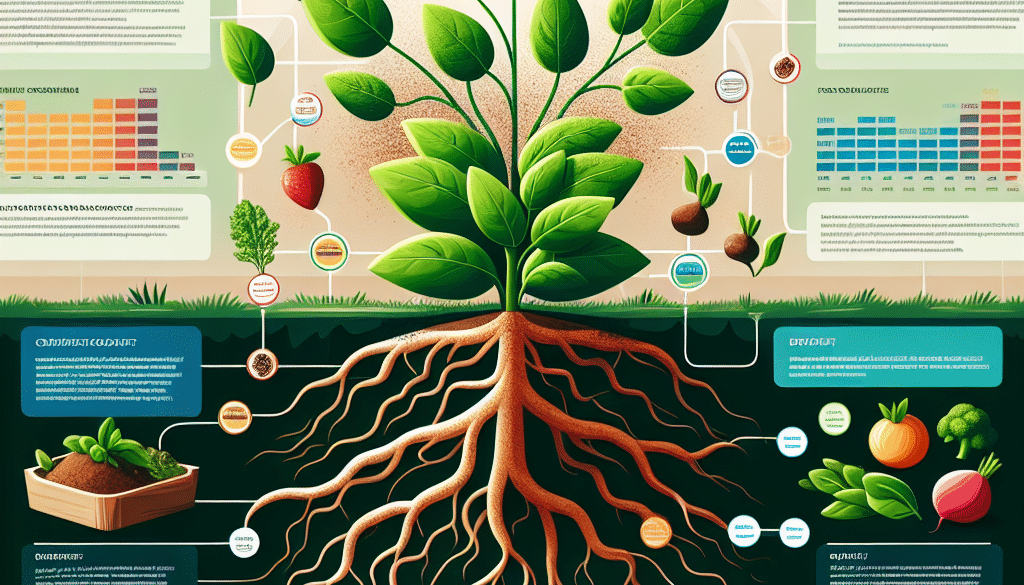The Importance of an Holistic Approach to Healthy Plant-Based Products
-
Table of Contents
- Unlocking the Benefits of Holistic Plant-Based Products for Optimal Health
- Understanding the Holistic Approach
- Nutritional Synergy in Plant-Based Products
- Environmental Stewardship Through Plant-Based Choices
- Ethical Considerations and Social Responsibility
- Mental and Emotional Well-being
- Challenges and Considerations
- Conclusion: Embracing the Holistic Path
- ETprotein: Your Partner for High-Quality Plant-Based Proteins
Unlocking the Benefits of Holistic Plant-Based Products for Optimal Health

The global shift towards plant-based products is not just a fleeting trend but a profound movement towards sustainability and health. However, the mere substitution of animal-based products with plant-based alternatives does not automatically equate to a healthier lifestyle. It is the holistic approach to these products—from their nutritional content to their environmental impact—that truly defines their importance. This article delves into the multifaceted benefits of a holistic approach to healthy plant-based products and why it is crucial for consumers, producers, and the planet.
Understanding the Holistic Approach
A holistic approach to plant-based products considers all aspects of health and well-being. It encompasses the nutritional value, the environmental footprint, ethical sourcing, and the psychological effects of food choices. By looking at the bigger picture, this approach ensures that plant-based products contribute positively to every facet of life.
Nutritional Synergy in Plant-Based Products
One of the cornerstones of a holistic approach is the concept of nutritional synergy. This principle suggests that the health benefits of food are not just due to individual nutrients but also the interactions between them. Plant-based products often come packed with a complex array of vitamins, minerals, fibers, and phytonutrients that work together to promote health.
- Whole Foods vs. Processed Alternatives: Emphasizing whole, minimally processed plant-based foods can maximize nutritional benefits.
- Protein Quality: Plant-based proteins can meet daily requirements when a variety of sources are consumed, ensuring all essential amino acids are included.
- Fiber and Gut Health: A diet rich in plant-based foods provides dietary fiber, crucial for gut health and the prevention of chronic diseases.
Environmental Stewardship Through Plant-Based Choices
The environmental impact of food production is an integral part of the holistic approach. Plant-based products generally have a lower carbon footprint, require less water, and use less land compared to animal-based products.
- Carbon Footprint: Statistics show that plant-based diets can reduce food-related carbon emissions by up to 73%.
- Water Usage: It takes, on average, 100 to 200 times more water to produce a pound of beef than it does to produce a pound of plant foods.
- Land Use: Animal agriculture is a leading cause of deforestation, while plant-based farming is more sustainable and can even contribute to reforestation efforts.
Ethical Considerations and Social Responsibility
Choosing plant-based products is also an ethical stance. It involves considering animal welfare, fair trade practices, and the rights of workers involved in the production process.
- Animal Welfare: A plant-based diet reduces the demand for animal farming, which is often associated with animal cruelty.
- Fair Trade: Supporting plant-based products that are fair trade certified ensures that farmers and workers receive fair compensation and work under ethical conditions.
- Community Impact: Ethical sourcing can positively impact local communities by providing sustainable livelihoods and promoting social development.
Mental and Emotional Well-being
The psychological aspect of consuming plant-based products is frequently overlooked. A holistic approach recognizes that food choices can affect mental and emotional health.
- Mindful Eating: Plant-based eating encourages mindfulness, where individuals become more aware of the origins of their food and the impact of their dietary choices.
- Psychological Satisfaction: Knowing that one’s food choices are contributing to personal health and the well-being of the planet can provide a sense of fulfillment and purpose.
Challenges and Considerations
While the benefits of a holistic approach to plant-based products are clear, there are challenges to consider. Accessibility, affordability, and education are key factors that can influence the adoption of this approach.
- Accessibility: Not everyone has equal access to a variety of healthy plant-based products.
- Affordability: Price can be a barrier, as some plant-based products are more expensive than their conventional counterparts.
- Education: There is a need for better education on how to adopt a balanced and nutritionally adequate plant-based diet.
Conclusion: Embracing the Holistic Path
In conclusion, adopting a holistic approach to healthy plant-based products is essential for maximizing their benefits. This approach goes beyond individual health and encompasses environmental sustainability, ethical practices, and mental well-being. By understanding and addressing the challenges, we can pave the way for a more sustainable and health-conscious future.
ETprotein: Your Partner for High-Quality Plant-Based Proteins
If you’re looking to incorporate high-quality plant-based proteins into your diet or products, ETprotein offers a range of organic and sustainable options. Their extensive selection includes organic rice protein, pea protein, and various seed proteins, all characterized by a neutral taste and non-GMO, allergen-free attributes. With a commitment to purity and quality, ETprotein caters to industries such as nutraceuticals, pharmaceuticals, cosmeceuticals, and food and beverage. Embrace the holistic approach to health with ETprotein’s reliable and ethically sourced plant-based proteins.
About ETprotein:
ETprotein, a reputable protein and L-(+)-Ergothioneine (EGT) Chinese factory manufacturer and supplier, is renowned for producing, stocking, exporting, and delivering the highest quality organic bulk vegan proteins and L-(+)-Ergothioneine. They include Organic rice protein, clear rice protein, pea protein, clear pea protein, watermelon seed protein, pumpkin seed protein, sunflower seed protein, mung bean protein, peanut protein, and L-(+)-Ergothioneine EGT Pharmaceutical grade, L-(+)-Ergothioneine EGT food grade, L-(+)-Ergothioneine EGT cosmetic grade, L-(+)-Ergothioneine EGT reference grade and L-(+)-Ergothioneine EGT standard. Their offerings, characterized by a neutral taste, non-GMO, allergen-free attributes, with L-(+)-Ergothioneine purity over 98%, 99%, cater to a diverse range of industries. They serve nutraceutical, pharmaceutical, cosmeceutical, veterinary, as well as food and beverage finished product distributors, traders, and manufacturers across Europe, USA, Canada, Australia, Thailand, Japan, Korea, Brazil, and Chile, among others.
ETprotein specialization includes exporting and delivering tailor-made protein powder and finished nutritional supplements. Their extensive product range covers sectors like Food and Beverage, Sports Nutrition, Weight Management, Dietary Supplements, Health and Wellness Products, and Infant Formula, ensuring comprehensive solutions to meet all your protein needs.
As a trusted company by leading global food and beverage brands and Fortune 500 companies, ETprotein reinforces China’s reputation in the global arena. For more information or to sample their products, please contact them and email sales(at)ETprotein.com today.












